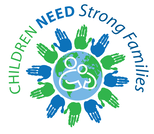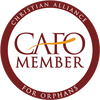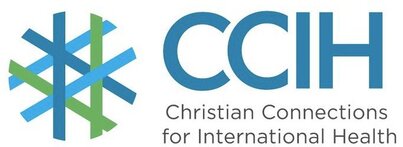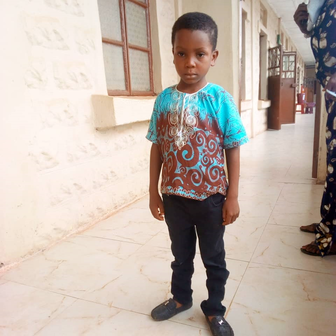 Mercy Hospital outreach team was on a visit to Bevehun village when they encountered 6 year old John suffering from severe inguinal hernia. John was transmitted to the hospital and admitted as a "destitute" (his parents were not able to pay for his treatment.) The surgical staff assessed the child and scheduled surgery to repair the hernia, which was successful. Inguinal hernia is a serious condition affecting all age groups in Sierra Leone. Activities that increase intra-abdominal pressure can cause a portion of the intestine to protrude through weakness in the abdominal wall. Heavy lifting, diarrhea, constipation, or persistent cough can all cause protrusion. Children in poor families may be especially vulnerable to hernias, as they may be carrying heavy water buckets or otherwise engaged in labor, and endemic diseases like typhoid and malaria create conditions that can lead to herniation. Left untreated, inguinal hernia can cause severe and even permanent damage to the intestines. John's father Augustine was deeply appreciative that his child was successfully treated at no cost. John made a full recovery and was happily reunited with his family.
0 Comments
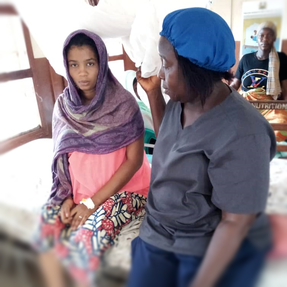 Salamatu, aged 24 and in late term pregnancy, came to the hospital with a high fever. She was examined by the midwife on duty and admitted. She was diagnosed with a severe malaria infection and given drug treatment. Much improved, Salamatu was discharged to await the onset of labor, with the encouragement to always sleep under a treated mosquito net. "I'm pleased with the care I received and glad I entrusted myself to Mercy," Salamatu said. Malaria is endemic in Sierra Leone and is one of the leading causes of maternal death. Children under five are also highly susceptible to infection, illness and death from malaria. The disease contributes to close to twenty percent of child mortality. Malaria is caused by five species of single-cell parasites that are transmitted by the bite of female Anopheles mosquitoes. 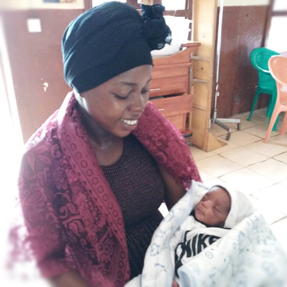 Sia was very late in her pregnancy when she came to the hospital with slight bleeding. An ultrasound scan revealed placenta previa (placenta covering the opening of the cervix) necessitating an emergency caesarian section. Sia's healthy baby boy was quickly delivered and she received a unit of blood. Mother and baby were fine at discharge. "Thank you for saving both of our lives, especially my precious baby," Sia told the Mercy surgical team. Placenta previa is not that common in Sierra Leone, and the cause is not well known, but contributing factors can include maternal age over 35, more than four pregnancies, or a history of uterine surgery. Surgery was necessary to save both the life of Sia and her baby. 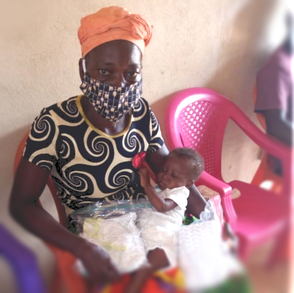 On outreach to Mahuama village, the Mercy team encountered Apea, a severely malnourished infant whose mother had died in labor. Having no money to provide for the child, the caregiver brought tiny Apea to the community health post where the CHO Ishmael diagnosed the child with malaria and malnutrition. Apea was treated for malaria and enrolled in Mercy's nutrition program. Matron Augusta gave the caregiver baby clothes, diapers and blankets, and instructed her how to feed the baby "pikin mix," Mercy's prescribed nutritional supplementation, similar to Plumpy'nut. The caregiver was given a supply of pikin mix to feed the baby and a return date for the nutrition clinic. Sierra Leone has one of the highest rates of child malnutrition, caused primarily by extreme poverty. Fighting early childhood malnutrition is one of Mercy Hospital's primary missions, graduating approximately 25 now-healthy infants and toddlers from the program each month. 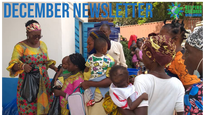
Mohamed Nabieu, HCW's Assistant Director for Mission Advancement and Partner Church Lead, contributed to a webinar hosted by Significant Matters to discuss how the American church can care for orphans and vulnerable children as they are impacted by the COVID-19 pandemic.
Tom Bassford, President of Significant Matters and creator of SATtalks, facilitated the conversation between global practitioners on how American Christians can do better in living out their biblical call to care for orphans and vulnerable children in the wake of COVID-19. While the COVID-19 pandemic continues to spread across the world, the economic impact, coupled with lack of access to essential social and medical services, will test the capacity of vulnerable families to care for their children. There is a great risk of many more children being placed in a care system that is not able to meet their needs and rights. Ultimately the number of children at risk of separation for their family is likely to increase and the American Church is well suited to respond. Participating organizations: Significant Matters: https://significantmatters.com/ Faith to Action: https://www.faithtoaction.org/ The Better Care Network: https://bettercarenetwork.org/ Helping Children Worldwide: https://helpingchildrenworldwide.org Overlake Christian Church: https://occ.org/ |
Follow us on social media
Archive
July 2024
Click the button to read heartfelt tributes to a beloved Bishop, co- founder of our mission!
Post
|
Helping Children Worldwide is a 501 (c) 3 nonprofit organization | 703-793-9521 | [email protected]
©2017 - 2021 Helping Children Worldwide
All donations in the United States are tax-deductible in full or part. | Donor and Privacy Policy
©2017 - 2021 Helping Children Worldwide
All donations in the United States are tax-deductible in full or part. | Donor and Privacy Policy



